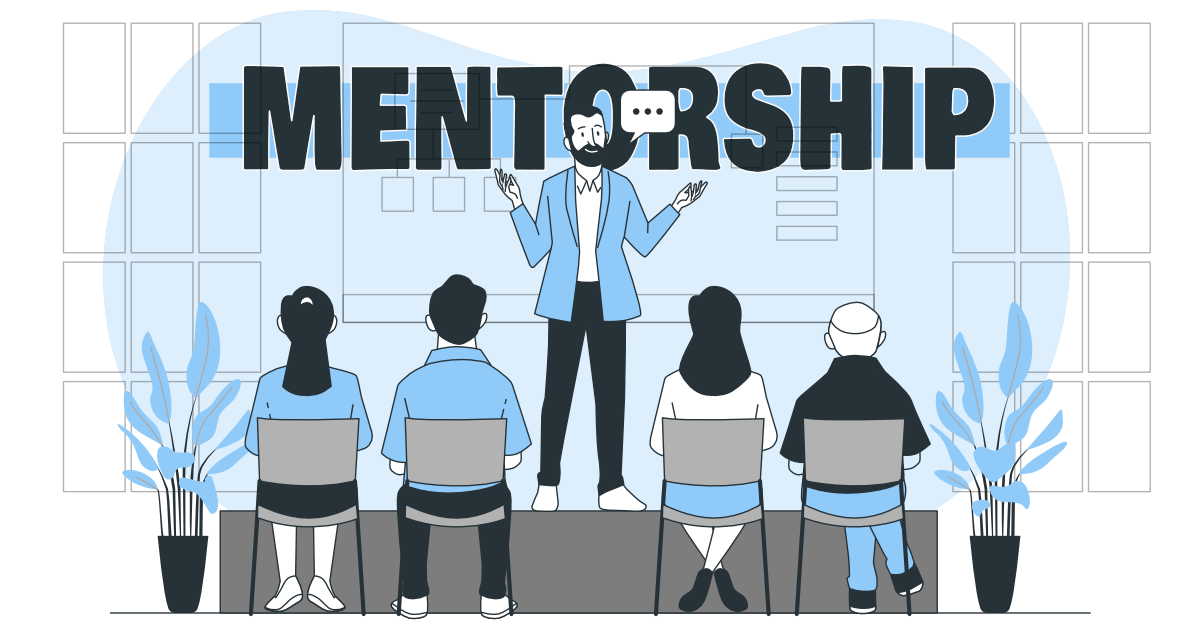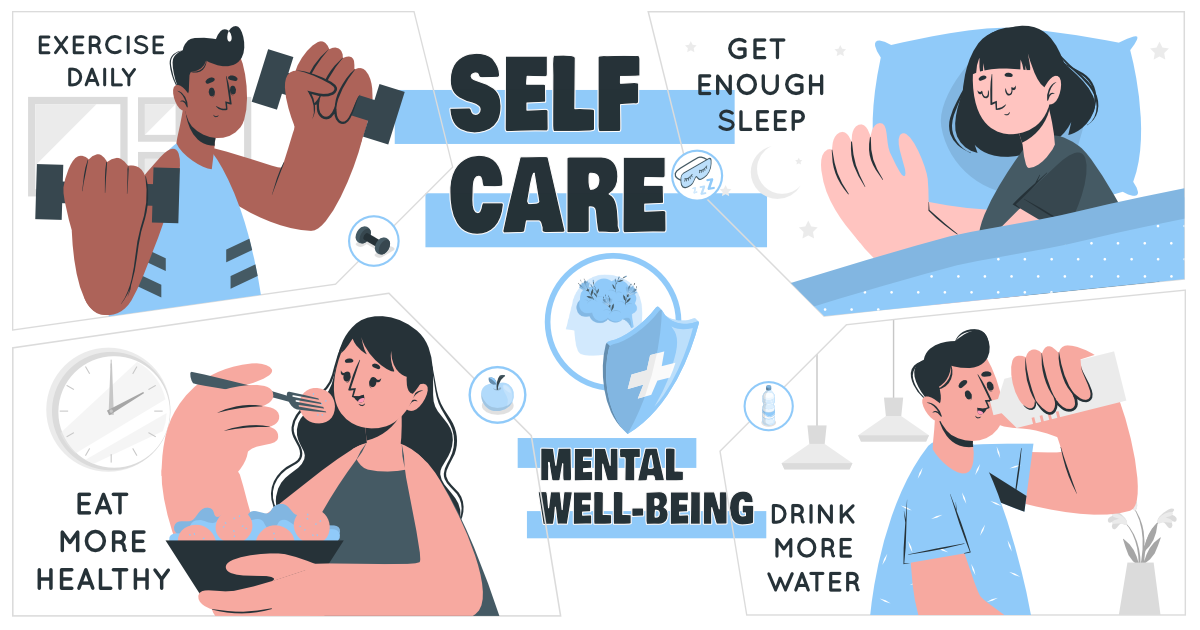The power of mentorship and seeking guidance from more experienced entrepreneurs is an important aspect of the entrepreneurial journey. Having a mentor or a role model who has been through the ups and downs of building a successful business can provide invaluable support, advice, and guidance. By working with a mentor, entrepreneurs can learn from their experiences, overcome challenges, and gain valuable insights into the industry. This sub-topic will explore the benefits of mentorship, strategies for finding the right mentor, and tips for making the most of the mentor-mentee relationship.
Understanding the benefits of mentorship for entrepreneurs
Mentorship is a crucial aspect of an entrepreneur’s journey as it provides valuable insights, guidance, and support from experienced individuals in the industry. In this article, we will dive into the benefits of mentorship for entrepreneurs and how it can help them grow and succeed in their venture.
Benefits of Mentorship for Entrepreneurs
- Access to Industry Knowledge: Mentors bring a wealth of experience and knowledge to the table, which can help entrepreneurs make informed decisions, avoid common pitfalls, and grow their business faster.
- Networking Opportunities: Mentors typically have a strong network of industry contacts, which entrepreneurs can leverage for business opportunities, partnerships, and collaborations.
- Personal Growth and Development: Mentors provide guidance and support that can help entrepreneurs improve their skills, grow as individuals, and achieve their personal and professional goals.
- A Fresh Perspective: Mentors can provide an outside perspective on challenges and opportunities, which can help entrepreneurs think more critically and find innovative solutions.
Step-by-Step Guide
- Define Your Goals: Start by defining what you hope to achieve through mentorship. This could include gaining knowledge and skills, expanding your network, or improving your overall performance.
- Identify Potential Mentors: Look for mentors who have experience and expertise in your field, and who align with your values and goals. You can start by reaching out to people in your network or attending industry events.
- Build Relationships: Once you have identified potential mentors, start building relationships with them by reaching out and engaging in conversations. Share your goals and interests, and ask for their advice and feedback.
- Set Expectations: When you have established a relationship with a mentor, be clear about what you hope to achieve through mentorship, and set expectations for communication and involvement.
- Be Open and Honest: Be open and honest with your mentor about your challenges and opportunities. Ask for their input, and be willing to receive constructive criticism and feedback.
- Foster a Mutual Relationship: Mentorship is a two-way street. As you learn from your mentor, be sure to offer your own insights and experiences, and help your mentor grow and develop in return.
Best Practices
- Be Respectful: Remember that your mentor is taking time out of their busy schedule to help you, so be respectful of their time and energy.
- Be Committed: Mentorship requires effort and commitment from both parties. Be prepared to put in the work to build a strong relationship and achieve your goals.
- Be Open to Feedback: Be open to receiving feedback from your mentor, and be willing to take action on their suggestions.
- Give Back: Mentorship is a two-way street. As you grow and develop, be sure to give back to your mentor and others in the entrepreneurial community.
Conclusion
Mentorship can be a powerful tool for entrepreneurs, providing valuable insights, guidance, and support that can help them grow and succeed in their ventures. By following the steps outlined in this article, entrepreneurs can find and build relationships with mentors who can help them achieve their goals.
Strategies for finding and connecting with mentors
Finding the right mentor can be a challenging and time-consuming task, but it is a critical step in your entrepreneurial journey. The right mentor can provide guidance, insight, and support as you navigate the ups and downs of starting and growing a business. In this article, we will discuss strategies for finding and connecting with mentors who can help you achieve your goals.
Step-by-Step Guide for Finding a Mentor
- Identify your needs: The first step in finding a mentor is to identify your needs. What areas do you want to focus on in your business? What kind of guidance do you need to grow and succeed?
- Determine your goals: What are your long-term goals for your business? What kind of person do you want to become as an entrepreneur?
- Research potential mentors: Once you have identified your needs and goals, you can begin your search for potential mentors. Look for individuals who have the experience and expertise you are seeking and who have a proven track record of success.
- Attend events and network: Attend industry events and conferences, join entrepreneurial groups and organizations, and attend meetups to expand your network and connect with potential mentors.
- Reach out to your network: Ask your current network if they know anyone who could be a good mentor. This can be a great way to find someone who has a strong reputation and who is highly recommended.
- Be clear and direct: When reaching out to potential mentors, be clear and direct about what you are looking for and what you hope to gain from the relationship.
- Start small: Start by having a coffee or a phone call and see if there is a good connection. You can then build on that relationship if it seems like a good fit.
Tips for Connecting with Mentors
- Be professional: When reaching out to potential mentors, make sure you are professional and respectful in your approach.
- Demonstrate your commitment: Show potential mentors that you are serious about your business and that you are willing to put in the work to succeed.
- Offer value: Offer to help the mentor in any way you can. This could include offering to help with a project or providing them with valuable resources.
- Be open to feedback: Be open to receiving feedback and criticism from your mentor. This is a crucial part of the mentorship process and will help you grow as an entrepreneur.
Examples of Successful Mentorship Relationships
- Steve Jobs and Robert Noyce: Apple co-founder Steve Jobs was mentored by Robert Noyce, co-founder of Intel, who provided guidance and support throughout Jobs’ career.
- Jeff Bezos and Warren Buffett: Amazon founder Jeff Bezos has been mentored by Berkshire Hathaway CEO Warren Buffett, who has provided invaluable advice and guidance on business and leadership.
- Mark Zuckerberg and Steve Chen: Facebook co-founder Mark Zuckerberg was mentored by Steve Chen, co-founder of YouTube, who provided advice and guidance on the early stages of building the social media giant.
Conclusion
Having a mentor can be an invaluable asset to any entrepreneur. Finding the right mentor takes time and effort, but the benefits are well worth it. By following the steps and tips outlined in this article, you can find a mentor who can help you achieve your goals and become a successful entrepreneur.
Tips for making the most of a mentorship relationship
A mentorship relationship can be incredibly valuable for entrepreneurs, providing them with guidance, support, and a sounding board for their ideas. However, in order to get the most out of this relationship, entrepreneurs need to approach it with a strategic mindset. Here are some tips for making the most of a mentorship relationship:
- Be clear about your goals Before entering into a mentorship relationship, it’s important to have a clear idea of what you hope to achieve. This could include gaining insights into a particular industry, developing a specific skill, or receiving advice on a specific challenge. Having clear goals will help you get the most out of your time with your mentor.
- Communicate openly and regularly Good communication is key to any relationship, and a mentorship is no exception. Make sure you set aside time for regular check-ins with your mentor and be open about any challenges or questions you may have. Your mentor is there to help you, so don’t be afraid to ask for advice or guidance when you need it.
- Be proactive and take initiative Your mentor is there to guide and support you, but they can’t do all the work. You need to take the initiative to make the most of your time with them. This could include preparing for meetings in advance, setting specific goals for each session, or actively seeking out opportunities to apply what you’ve learned.
- Be willing to learn and grow A mentorship relationship is not just about receiving advice and support – it’s also about learning and growing as an individual. Be open to constructive criticism and be willing to put in the work to improve. Your mentor is a valuable resource, and by being willing to learn from them, you can gain valuable insights and skills that will help you achieve your goals.
- Give back Finally, it’s important to remember that a mentorship is a two-way street. Be sure to give back to your mentor by sharing your own experiences and insights, and by helping them achieve their own goals. This could include connecting them with potential clients or partners, offering them feedback on their work, or simply being a supportive sounding board.
Conclusion
A mentorship relationship can be incredibly valuable for entrepreneurs, providing them with guidance, support, and a sounding board for their ideas. However, to get the most out of this relationship, it’s important to approach it with a strategic mindset and to take a proactive approach to learning and growth. By following these tips, entrepreneurs can build strong, productive relationships with their mentors that will help them achieve their goals.
The role of mentorship in professional development and career growth
Mentorship is a powerful tool that can help entrepreneurs and professionals to develop their skills, gain new insights and perspectives, and advance their careers. Mentors provide guidance, support, and resources that are essential for growth and success in any industry. In this article, we will explore the role of mentorship in professional development and career growth.
Mentorship is a relationship between an experienced individual and a less experienced individual that is focused on the development of the latter. The mentor provides guidance, advice, and support to help the mentee reach their professional and personal goals. This relationship can be a valuable source of inspiration, motivation, and learning for the mentee, and can help them to make meaningful progress in their career.
Mentorship is important because it provides access to a wealth of knowledge, experience, and networks that the mentee may not otherwise have access to. The mentor can share their own experiences and provide insights into the challenges and opportunities of the industry, helping the mentee to make informed decisions and avoid common mistakes. Additionally, mentorship can help the mentee to develop new skills, build confidence, and grow professionally, which can lead to better job opportunities and a more successful career.
How can you find and work with a mentor?
Finding a mentor can be a challenge, but there are several strategies that can help you to connect with potential mentors. One of the best ways to find a mentor is to attend industry events and conferences, where you can meet and network with experienced professionals in your field. You can also reach out to individuals who have a reputation for being experts in your area of interest, and ask if they would be willing to provide guidance and support. Additionally, many organizations and professional associations offer mentorship programs, which can be a great way to find a mentor who can help you with your career goals.
Tips for making the most of a mentorship relationship
- Be clear about your goals and expectations for the relationship
- Communicate openly and honestly with your mentor
- Ask for feedback and take their advice seriously
- Be proactive in seeking out opportunities for growth and learning
- Stay in touch and maintain the relationship over time.
Examples
- Steve Jobs and Robert Noyce
- Elon Musk and Peter Thiel
- Sheryl Sandberg and Eric Schmidt
Conclusion
Mentorship is a critical component of professional development and career growth. By connecting with experienced professionals in your field, you can gain valuable insights, develop new skills, and advance your career. To make the most of your mentorship relationship, it is important to be clear about your goals, communicate openly, and take advantage of opportunities for growth and learning
How to find and work with mentors in the entrepreneurial community
Mentorship is a critical component in the success of many entrepreneurs. Working with a mentor can provide guidance, support, and advice from someone who has been in your shoes. Mentors can also help you avoid common pitfalls, offer new perspectives, and introduce you to new networks and opportunities. In this article, we’ll discuss the steps to finding and working with a mentor in the entrepreneurial community.
Step 1: Define Your Goals
Before you start your search for a mentor, it’s important to have a clear understanding of what you want to achieve through the mentorship relationship. This can include goals such as improving your business skills, finding new business opportunities, or building your professional network. Write down your goals and what you hope to get out of a mentorship relationship.
Step 2: Search for Mentors
There are several ways to search for a mentor in the entrepreneurial community. Here are a few options:
- Networking events: Attend networking events and conferences related to entrepreneurship. This is a great opportunity to meet and connect with entrepreneurs who can provide valuable insights and guidance.
- Online resources: Utilize online resources such as LinkedIn or websites that connect entrepreneurs with mentors.
- Ask for referrals: Reach out to your current network and ask for referrals to entrepreneurs who may be good mentors for you.
Step 3: Reach Out to Potential Mentors
Once you have identified potential mentors, it’s time to reach out to them. When reaching out, be professional, concise, and clear about why you are interested in working with them and what you hope to gain from the relationship. Provide a brief overview of your business and your goals.
Step 4: Building the Relationship
After making initial contact, it’s important to take steps to build the relationship. This can include meeting for coffee or lunch, attending events together, or participating in a mentorship program. As the relationship progresses, it’s important to be open and transparent about your goals and what you hope to achieve through the mentorship.
Step 5: Utilize Your Mentor’s Expertise
Your mentor can provide valuable advice and support. Utilize your mentor’s expertise to help you achieve your goals. Ask for advice on specific business challenges, seek feedback on your business strategies, and take advantage of opportunities to learn from their experiences.
Step 6: Maintain Communication
Maintaining regular communication is key to a successful mentorship relationship. Keep your mentor updated on your progress and be open to constructive criticism. This will help you maintain the relationship and get the most out of the mentorship.
Conclusion
Finding and working with a mentor in the entrepreneurial community can provide valuable support and guidance on your entrepreneurial journey. By following these steps, you can find a mentor who can help you achieve your goals and provide valuable insights and advice.
How to find and join mentorship programs and accelerators
Mentorship programs and accelerators are powerful resources for entrepreneurs seeking guidance and support as they grow their businesses. These programs pair entrepreneurs with experienced mentors and provide them with access to valuable resources, including funding, training, and networking opportunities. In this article, we’ll discuss the steps you can take to find and join a mentorship program or accelerator.
Step 1: Research Available Programs
The first step in finding a mentorship program or accelerator is to research the available options. There are many programs out there, so it’s important to take the time to find the one that’s right for you and your business.
To start your research, you can use search engines, such as Google, to find programs in your area or in your industry. You can also check websites such as AngelList, Gust, and Seed-DB, which list startup accelerators and mentorship programs.
Step 2: Evaluate the Program’s Fit for Your Business
Once you have a list of potential programs, it’s important to evaluate each one to determine if it’s a good fit for your business. Consider the following factors:
- Industry focus: Does the program focus on your industry or a related industry?
- Mentorship: What kind of mentorship is offered? Are the mentors experienced and successful entrepreneurs?
- Networking opportunities: Does the program offer opportunities to connect with other entrepreneurs and investors?
- Location: Is the program located in an area that’s convenient for you to access?
Step 3: Prepare Your Application
To apply for a mentorship program or accelerator, you’ll need to prepare a strong application. This typically includes a business plan, financial projections, and an executive summary. You may also need to provide additional information, such as a resume, references, and a pitch deck.
Step 4: Apply to the Programs
Once your application is ready, you can begin applying to the programs you’re interested in. Be sure to follow each program’s application instructions carefully and submit your application by the deadline.
Step 5: Follow Up and Negotiate
After you’ve submitted your application, it’s important to follow up with the program to ensure they received it and to ask about the status of your application. If you’re accepted into a program, be sure to negotiate the terms of your participation, including the amount of equity you’ll be required to give up, the length of the program, and any other requirements.
Best Practices and Actionable Tips
- Take the time to research and evaluate programs to find the one that’s right for you and your business
- Prepare a strong application that highlights the strengths of your business and demonstrates your commitment to success
- Follow up with programs after you’ve submitted your application to ensure they received it and to ask about the status of your application
- Negotiate the terms of your participation in a mentorship program or accelerator to ensure you’re getting the best deal for your business
Conclusion
Joining a mentorship program or accelerator can provide entrepreneurs with valuable resources and support as they grow their businesses. By following these steps, you can find and join a program that’s a good fit for your business and take advantage of the many benefits they offer.
The importance of networking and building relationships with more experienced entrepreneurs
Networking is a crucial aspect of the entrepreneurial journey, and it allows entrepreneurs to build relationships with more experienced entrepreneurs who can offer guidance and support. In this article, we will discuss the importance of networking and building relationships in the entrepreneurial community, and provide a step-by-step guide for doing so.
Networking provides entrepreneurs with numerous benefits, including access to mentorship, new business opportunities, and a support system of like-minded individuals. When entrepreneurs network, they can gain valuable insights and advice from more experienced entrepreneurs, and also have the opportunity to share their own experiences and challenges.
Step-by-Step Guide for Networking in the Entrepreneurial Community
- Identify your goals: Before you start networking, it’s important to determine what you hope to achieve. Are you looking for mentorship, new business opportunities, or simply a support system? Knowing your goals will help you focus your efforts and determine the best networking events to attend.
- Research networking events: Research networking events and organizations in your area that are specifically geared towards entrepreneurs. There are many events, such as Startup Weekend, Founder Institute, and Entrepreneur Mixers, that are designed to bring entrepreneurs together.
- Prepare your introduction: When you attend a networking event, it’s important to have a clear and concise introduction that highlights your skills, experience, and goals. This will help others understand what you bring to the table and why you are interested in networking.
- Be active and engage: Once you’re at the event, actively participate and engage with others. Ask questions, share your own experiences, and offer help and support to others. Remember, networking is about building relationships, so the more you engage and interact with others, the more opportunities you will have to connect and build relationships.
- Follow up and maintain relationships: After the event, make sure to follow up with any connections you made. You can send an email, connect on LinkedIn, or schedule a coffee meeting to continue the conversation. Maintaining relationships is key to building a strong network of supportive entrepreneurs.
Tips for Making the Most of Your Networking Efforts
- Be authentic and genuine: When networking, be yourself and show your genuine interest in connecting with others. People are more likely to respond positively to those who are authentic and genuine.
- Offer help and support: Offer to help others, whether it’s by offering advice, making introductions, or simply lending an ear. Building a supportive network is about giving as well as receiving.
- Stay connected and engaged: Keep in touch with your network, and participate in regular events and activities. This will help you stay connected and engaged, and also provide opportunities to build new relationships.
Conclusion
Networking is a crucial aspect of the entrepreneurial journey, and it allows entrepreneurs to build relationships with more experienced entrepreneurs who can offer guidance and support. By following the step-by-step guide outlined in this article, entrepreneurs can make the most of their networking efforts and build a strong network of supportive entrepreneurs.
How to be a good mentee and make the most of the mentorship
Having a mentor can be a valuable experience for any entrepreneur, but it takes effort from both parties to make the relationship successful. As a mentee, you have a crucial role to play in maximizing the benefits of the mentorship. In this article, we’ll explore how to be a good mentee and make the most of your mentorship relationship.
Step-by-Step Guide
- Define your goals: Before you start looking for a mentor, it’s important to define what you hope to gain from the relationship. Do you want advice on starting a business, guidance on growing a company, or help with navigating a specific challenge? Knowing what you want to achieve will help you find the right mentor and communicate your goals effectively.
- Communicate your expectations: Once you have a mentor, it’s important to communicate your expectations clearly. Discuss how often you want to meet, what you want to focus on during each session, and what kind of feedback you are looking for. This will help ensure that both parties are on the same page and can make the most of the relationship.
- Be proactive: Don’t wait for your mentor to come to you with advice or opportunities. Instead, be proactive in seeking out their guidance and expertise. Ask for their opinion on specific challenges, share updates on your progress, and seek their advice on key decisions.
- Be respectful: Your mentor is taking time out of their busy schedule to help you, so it’s important to be respectful of their time and expertise. Be punctual for meetings, follow up on tasks and assignments, and express gratitude for their support.
- Take action: The best way to make the most of your mentorship is to take action on the advice and guidance you receive. Implement new ideas, try out new strategies, and reflect on what you have learned.
Examples and Best Practices
- One of the best ways to make the most of your mentorship is to be open to feedback and criticism. Don’t be defensive or resistant to new ideas, but instead, listen to what your mentor has to say and consider their perspective.
- Keep your mentor in the loop on your progress and challenges. Regular check-ins and updates can help keep the relationship strong and provide your mentor with a better understanding of where you are at and how they can help.
- Seek out additional resources to supplement your mentorship. Attend workshops, read books, and network with other entrepreneurs to gain new perspectives and ideas.
Conclusion
A mentorship can be a valuable experience for any entrepreneur, but it takes effort from both parties to make the relationship successful. By being a good mentee and making the most of the mentorship, you can gain valuable insights, advice, and guidance that can help you achieve your goals.
Actionable Tips
- Define your goals and communicate your expectations to your mentor.
- Be proactive in seeking out your mentor’s guidance and expertise.
- Be respectful of your mentor’s time and expertise.
- Take action on the advice and guidance you receive.
- Seek out additional resources to supplement your mentorship.
The role of mentorship in developing a growth mindset and learning from failure
Mentorship can play a significant role in helping entrepreneurs develop a growth mindset and learn from failure. A growth mindset is an approach to challenges and obstacles that views them as opportunities for growth and development. It involves embracing a “can-do” attitude, seeking feedback and learning from mistakes, and embracing failure as a step towards success.
Step-by-Step Guide to Developing a Growth Mindset with Mentorship
- Identify a mentor who embodies a growth mindset: Look for mentors who have demonstrated a positive attitude towards challenges and failure, and have a track record of success despite setbacks.
- Discuss your goals and challenges with your mentor: Share your goals, both personal and professional, and any challenges you may be facing. Your mentor can help you identify areas where you may need to develop a growth mindset.
- Seek feedback and advice: Ask your mentor for feedback on your approach to challenges and how you can develop a growth mindset. Listen to their advice and incorporate it into your own approach.
- Practice using a growth mindset: Practice using a growth mindset by taking on new challenges, seeking feedback, and learning from mistakes.
- Reflect on your progress: Regularly reflect on your progress and seek feedback from your mentor on your development. Celebrate your successes and acknowledge areas where you need to continue growing.
Why is a Growth Mindset Important?
A growth mindset helps entrepreneurs develop resilience, perseverance, and a positive attitude towards challenges and failure. It also helps entrepreneurs develop the skills they need to succeed, including problem-solving, critical thinking, and creative problem-solving.
Examples of Success with a Growth Mindset Steve Jobs, co-founder of Apple, is a prime example of someone who had a growth mindset. He believed that challenges were opportunities for growth and that setbacks were merely temporary. This mindset helped him develop innovative products and create a successful company.
Best Practices for Embracing a Growth Mindset
- Seek out challenges: Take on new challenges and seek out opportunities for growth.
- Embrace failure: Accept that failure is a necessary step towards success and view it as a learning opportunity.
- Seek feedback: Seek feedback on your approach to challenges and learn from your mistakes.
- Practice gratitude: Practice gratitude and focus on the positive aspects of challenges and setbacks.
- Surround yourself with positive influences: Surround yourself with people who have a positive attitude towards challenges and failure, and who embody a growth mindset.
Conclusion
Mentorship can play a significant role in helping entrepreneurs develop a growth mindset and learn from failure. By identifying a mentor who embodies a growth mindset, seeking feedback and advice, and practicing using a growth mindset, entrepreneurs can develop the skills they need to succeed. Embracing a growth mindset helps entrepreneurs develop resilience, perseverance, and a positive attitude towards challenges and failure, which are essential skills for success in the entrepreneurial world.
How to create a mentorship culture in your own business
A mentorship culture is an environment where individuals are encouraged to learn, grow, and develop their skills with the guidance and support of experienced mentors. It can have a profound impact on the success of a business by fostering creativity, innovation, and collaboration among employees. In this article, we will explore how to create a mentorship culture in your own business.
Step-by-Step Guide
- Define your objectives: Clearly define what you hope to achieve through a mentorship culture in your business. This can include developing your employees’ skills, fostering innovation, or improving team collaboration.
- Identify potential mentors: Look for individuals within your organization who have the skills and experience to be effective mentors. Consider their availability, willingness, and ability to mentor others.
- Create a mentorship program: Develop a structured mentorship program that includes clear goals, expectations, and guidelines for both mentors and mentees. This program should outline the duration, frequency, and responsibilities of both parties.
- Provide training and support: Provide training for both mentors and mentees to ensure that they are equipped with the knowledge and skills needed to be successful. This can include workshops, coaching sessions, or online resources.
- Encourage open communication: Foster open communication between mentors and mentees to ensure that they are able to share their experiences, ideas, and feedback. This can be done through regular meetings, feedback sessions, or online forums.
- Measure success: Regularly evaluate the success of your mentorship program and make adjustments as needed. This can include collecting feedback from mentors and mentees, tracking progress, and monitoring results.
Real-Life Scenario
A software company decided to implement a mentorship culture to help their employees grow and develop their skills. They identified potential mentors within the company, created a structured mentorship program, provided training and support, encouraged open communication, and regularly evaluated the success of the program. As a result, the company saw an improvement in employee satisfaction, increased creativity and innovation, and stronger collaboration among teams.
Actionable Tips
- Encourage open and honest communication between mentors and mentees
- Provide regular feedback and support to both mentors and mentees
- Set clear goals and expectations for both parties
- Regularly evaluate the success of the mentorship program and make adjustments as needed
Relevant Tools
- Meetup: A platform that connects individuals with shared interests and helps them meet in person
- LinkedIn: A professional networking site that allows individuals to connect with potential mentors and build relationships
- MentorNet: A virtual mentorship program that connects individuals with mentors in their field.
Conclusion
Creating a mentorship culture in your own business can have a significant impact on employee development and overall business success. By following these steps, you can create a structured and supportive environment where individuals are encouraged to learn and grow.
Resources and References
- “The Lean Entrepreneur: How to Accomplish More by Doing Less” by Brant Cooper and Patrick Vlaskovits
- “The Art of Possibility: Transforming Professional and Personal Life” by Rosamund Stone Zander and Benjamin Zander
- “The Lean Startup: How Today’s Entrepreneurs Use Continuous Innovation to Create Radically Successful Businesses” by Eric Ries
- “The 7 Habits of Highly Effective People: Powerful Lessons in Personal Change” by Stephen Covey
- “The Power of Intentional Leadership: Succeed on Purpose” by John C. Maxwell.
- “Start with Why: How Great Leaders Inspire Everyone to Take Action” by Simon Sinek
- “Contagious: How to Build Word of Mouth in the Digital Age” by Jonah Berger
- “Never Eat Alone: And Other Secrets to Success, One Relationship at a Time” by Keith Ferrazzi
- “The Art of Possibility: Transforming Professional and Personal Life” by Rosamund Stone Zander and Benjamin Zander
- “How to Win Friends & Influence People” by Dale Carnegie
- “Mentor: The Kid & The CEO” by Tom Bilyeu
- “Mindset: The New Psychology of Success” by Carol Dweck
- “The Power of Positive Thinking” by Norman Vincent Peale
- “The Mentor Leader: Secrets to Building People and Teams That Win Consistently” by Tony Dungy













